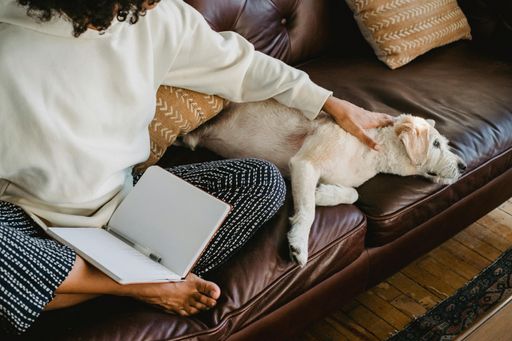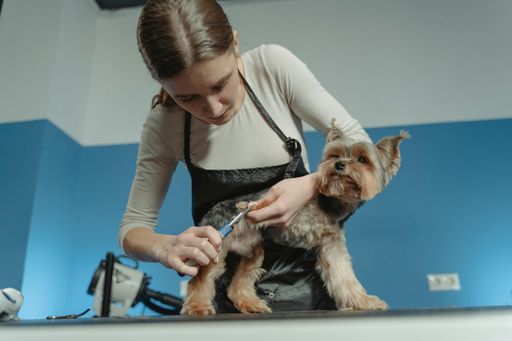Student life is a time of freedom, new opportunities, and responsibility. Lectures, notes, school projects, meeting up with friends — it's all mixed in one crazy rhythm. And if you add a dog to the mix, the level of responsibility increases significantly, but so does the joy. A pet helps you learn to be organized, develops a sense of responsibility, and teaches you to pay attention to details. To ensure that your studies, dog care, and personal time do not interfere with one another, it is essential to establish a balanced daily routine.
Early wake-up calls and morning walks
Even if classes don't start until noon, your dog won't let you sleep in — and that's actually a good thing. A morning walk helps you wake up, lift your spirits, and energise yourself for the whole day. Try to go outside at the same time every day, preferably before breakfast. This creates a stable routine for your pet and allows you to start your day actively in the fresh air.
Pay attention to physical activity
Student life often involves long periods of sitting, such as in class, at the computer, or on public transport. Walking your dog helps you stay active, but it's also good to add more energetic activities such as running, playing Frisbee, or exercising outdoors. This approach enhances your mood, boosts your health, and helps both of you stay in great shape.
Finding time for your dog without falling behind in college
College students often find themselves short on time: their days are literally scheduled down to the minute, and caring for a dog requires additional effort. Between attending lectures, completing projects, and walking their dog, students often wish for someone to help me do my homework successfully. That's when you should turn to PapersOwl, where professional writers help students complete their essays and assignments on time and with high quality. This frees up time for walks with your pet, maintaining a healthy lifestyle, and keeping up with your studies without unnecessary stress.
Studying and caring for a pet: how to balance both without sacrificing either
A dog can be a real incentive for developing discipline. Having a dog at college encourages you to plan your time: regular walks, feeding, and training help you establish a routine, which has a positive effect on your studies. Many students report that having a pet has made them less likely to put off important tasks.
To make it easier to cope with your responsibilities, you should:
- create a table or checklist with a daily schedule (feeding, walks, studying);
- set reminders on your phone.
This rhythm helps reduce stress, and interacting with animals has a positive effect on attention. It has been scientifically proven that dogs lower cortisol levels and help overcome anxiety.
Don't forget about yourself
Sometimes students get so caught up in caring for their dog that they forget about their own needs. Don't overload yourself — leave time for rest and socializing. Try to combine business with pleasure: walking your pet can be a time to listen to podcasts, reflect, or call friends. A balanced lifestyle is the best example of care you can show your pet.

Balancing time between studying and walking your dog
Studying can often be unpredictable: sometimes lectures go until the evening, and sometimes there are gaps in your schedule. To ensure your pet is not left alone, it is important to plan your daily routine.
- On busy days, you can ask your roommate or friend to walk your dog, especially if you are a dog student trying to balance your studies and caring for your pet.
- In your free time, focus on active games and training — this helps your pet burn off energy and strengthens your bond.
Studying at home: how to organize your workspace
If you often study at home, make sure the best dog for college students is nearby but not distracting. Place a soft mat near your desk and give your pet a toy or treat to keep them calm while you listen to lectures or work on your coursework. Don't forget to pay attention to your dog: take short breaks every 1.5-2 hours to interact with them and take them for a short walk.
Conclusion
Many people ask: can you have a dog in college? The answer is yes, if you organize your time properly. A student dog is not a challenge, but an opportunity to develop organization and a sense of responsibility.
When a living creature that is completely dependent on you appears in your schedule, you begin to appreciate order, learn to plan your day properly, and set priorities. A dog helps you form healthy habits, improve emotional state and reminds you of simple joys: morning walks, sincere devotion, and the comfort of friendship. This means that living together is not a test, but a path to becoming a better version of yourself.


















